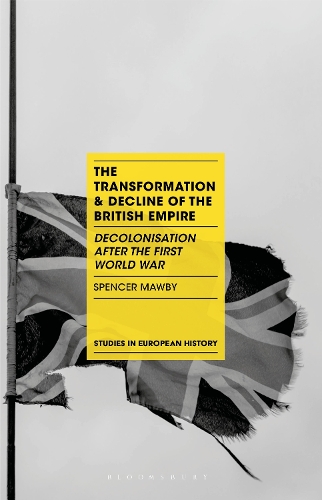
The Transformation and Decline of the British Empire: Decolonisation After the First World War
(Paperback)
Publishing Details
The Transformation and Decline of the British Empire: Decolonisation After the First World War
By (Author) Spencer Mawby
Bloomsbury Publishing PLC
Bloomsbury Academic
24th May 2018
United Kingdom
Classifications
Tertiary Education
Non Fiction
National liberation and independence
909.0971241
Physical Properties
Paperback
192
Width 138mm, Height 138mm
Description
The slow retreat of the British empire in the century after the First World War has had dramatic implications for Britain itself, its former colonies and the global balance of power. The Transformation and Decline of the British Empire provides a broad-ranging and accessible introduction to the key debates and discussions about this process of imperial decline. Drawing on the lively scholarship which has developed over the last 25 years, it offers both new students and established scholars a guide to the existing literature on British decolonisation, including subjects such as the rise of anti-colonialism, the impact of empire on British politics and culture, the significance of migration, the wars and insurgencies which accompanied the end of empire and the role which capital and labour played in imperial decline. Mawby also examines the way in which the historiography has developed through conversations and debates between scholars, the impact which present day concerns have on historical writing, the significance of new documentary findings and the impact of theoretical considerations on current controversies.
Reviews
'Methodologically sophisticated but accessibly written, Mawby's account brims with insights about the processes that drove British imperial decline. The thematic focus and impressive command of the specialist literature make this an obvious first choice for students new to British imperial history.' - Martin Thomas, University of Exeter, UK 'Were this simply a thoughtful and lucid guide through a dynamic and complex area of history, the reader would have much for which to be thankful. But Dr Mawby's work is more than that. In its critical engagement with the literature, it also invites the reader into a direct conversation with these texts. It simultaneously equips and provokes us to think with care about how we write about some of the most important events of the recent past.' - Christopher Prior, University of Southampton, UK
Author Bio
Spencer Mawby is Senior Lecturer in History at the University of Nottingham, UK.
